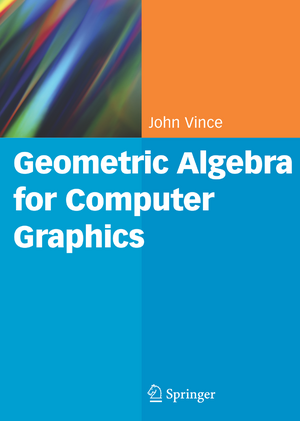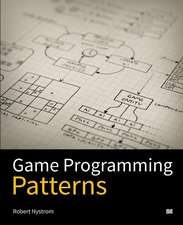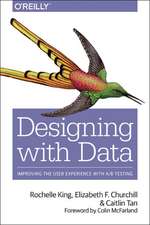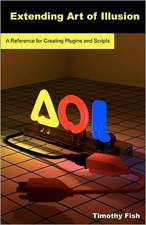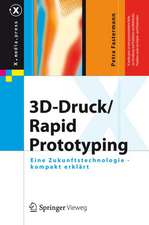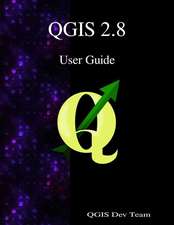Geometric Algebra for Computer Graphics
Autor John Vinceen Limba Engleză Hardback – 21 apr 2008
John Vince (author of numerous books including ‘Geometry for Computer Graphics’ and ‘Vector Analysis for Computer Graphics’) has tackled this complex subject in his usual inimitable style, and provided an accessible and very readable introduction.
As well as putting geometric algebra into its historical context, John tackles complex numbers and quaternions; the nature of wedge product and geometric product; reflections and rotations (showing how geometric algebra can offer a powerful way of describing orientations of objects and virtual cameras); and how to implement lines, planes, volumes and intersections. Introductory chapters also look at algebraic axioms, vector algebra and geometric conventions and the book closes with a chapter on how the algebra is applied to computer graphics.
| Toate formatele și edițiile | Preț | Express |
|---|---|---|
| Paperback (1) | 584.24 lei 6-8 săpt. | |
| SPRINGER LONDON – 13 oct 2010 | 584.24 lei 6-8 săpt. | |
| Hardback (1) | 591.17 lei 38-44 zile | |
| SPRINGER LONDON – 21 apr 2008 | 591.17 lei 38-44 zile |
Preț: 591.17 lei
Preț vechi: 738.97 lei
-20% Nou
Puncte Express: 887
Preț estimativ în valută:
113.14€ • 117.68$ • 93.40£
113.14€ • 117.68$ • 93.40£
Carte tipărită la comandă
Livrare economică 10-16 aprilie
Preluare comenzi: 021 569.72.76
Specificații
ISBN-13: 9781846289965
ISBN-10: 1846289963
Pagini: 344
Ilustrații: XVI, 256 p. 125 illus.
Dimensiuni: 178 x 235 x 20 mm
Greutate: 0.58 kg
Ediția:2008
Editura: SPRINGER LONDON
Colecția Springer
Locul publicării:London, United Kingdom
ISBN-10: 1846289963
Pagini: 344
Ilustrații: XVI, 256 p. 125 illus.
Dimensiuni: 178 x 235 x 20 mm
Greutate: 0.58 kg
Ediția:2008
Editura: SPRINGER LONDON
Colecția Springer
Locul publicării:London, United Kingdom
Public țintă
ResearchCuprins
Elementary Algebra.- Complex Algebra.- Vector Algebra.- Quaternion Algebra.- Geometric Conventions.- Geometric Algebra.- The Geometric Product.- Reflections and Rotations.- Geometric Algebra and Geometry.- Conformal Geometry.- Applications of Geometric Algebra.- Programming Tools for Geometric Algebra.- Conclusion.
Textul de pe ultima copertă
Since its invention, geometric algebra has been applied to various branches of physics such as cosmology and electrodynamics, and is now being embraced by the computer graphics community where it is providing new ways of solving geometric problems. It took over two thousand years to discover this algebra, which uses a simple and consistent notation to describe vectors and their products.
John Vince (best-selling author of a number of books including ‘Geometry for Computer Graphics’ and ‘Vector Analysis for Computer Graphics’) tackles this new subject in his usual inimitable style, and provides an accessible and very readable introduction.
The first five chapters review the algebras of real numbers, complex numbers, vectors, and quaternions and their associated axioms, together with the geometric conventions employed in analytical geometry. As well as putting geometric algebra into its historical context, John Vince provides chapters on Grassmann’s outer product and Clifford’s geometric product, followed by the application of geometric algebra to reflections, rotations, lines, planes and their intersection. The conformal model is also covered, where a 5D Minkowski space provides an unusual platform for unifying the transforms associated with 3D Euclidean space.
Filled with lots of clear examples and useful illustrations, this compact book provides an excellent introduction to geometric algebra for computer graphics.
John Vince (best-selling author of a number of books including ‘Geometry for Computer Graphics’ and ‘Vector Analysis for Computer Graphics’) tackles this new subject in his usual inimitable style, and provides an accessible and very readable introduction.
The first five chapters review the algebras of real numbers, complex numbers, vectors, and quaternions and their associated axioms, together with the geometric conventions employed in analytical geometry. As well as putting geometric algebra into its historical context, John Vince provides chapters on Grassmann’s outer product and Clifford’s geometric product, followed by the application of geometric algebra to reflections, rotations, lines, planes and their intersection. The conformal model is also covered, where a 5D Minkowski space provides an unusual platform for unifying the transforms associated with 3D Euclidean space.
Filled with lots of clear examples and useful illustrations, this compact book provides an excellent introduction to geometric algebra for computer graphics.
Caracteristici
Filled with lots of clear examples Very well illustrated Tackles the complex subject of geometric algebra and explains, in detail, how the algebra operates together with its relationship with traditional vector analysis Includes supplementary material: sn.pub/extras
